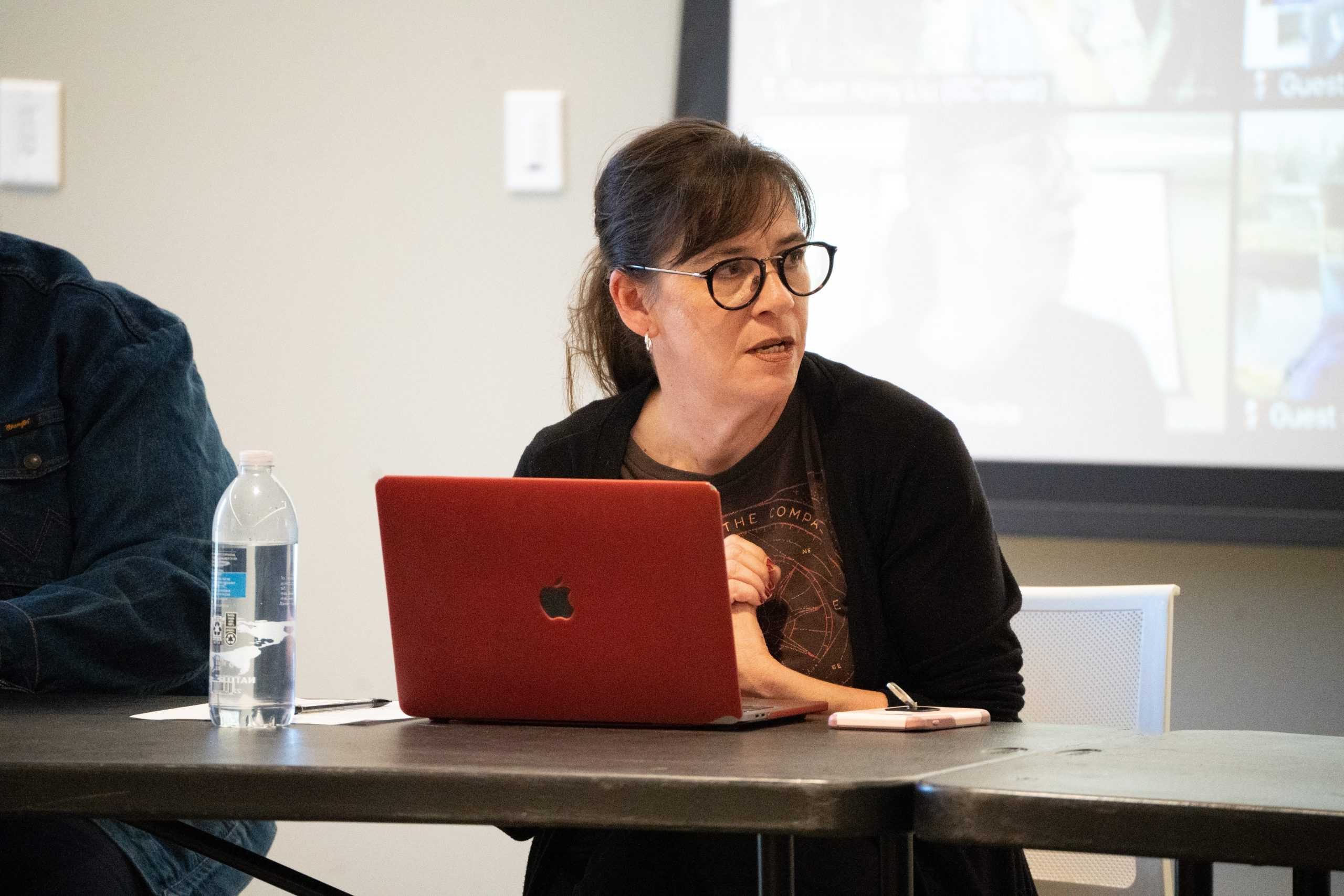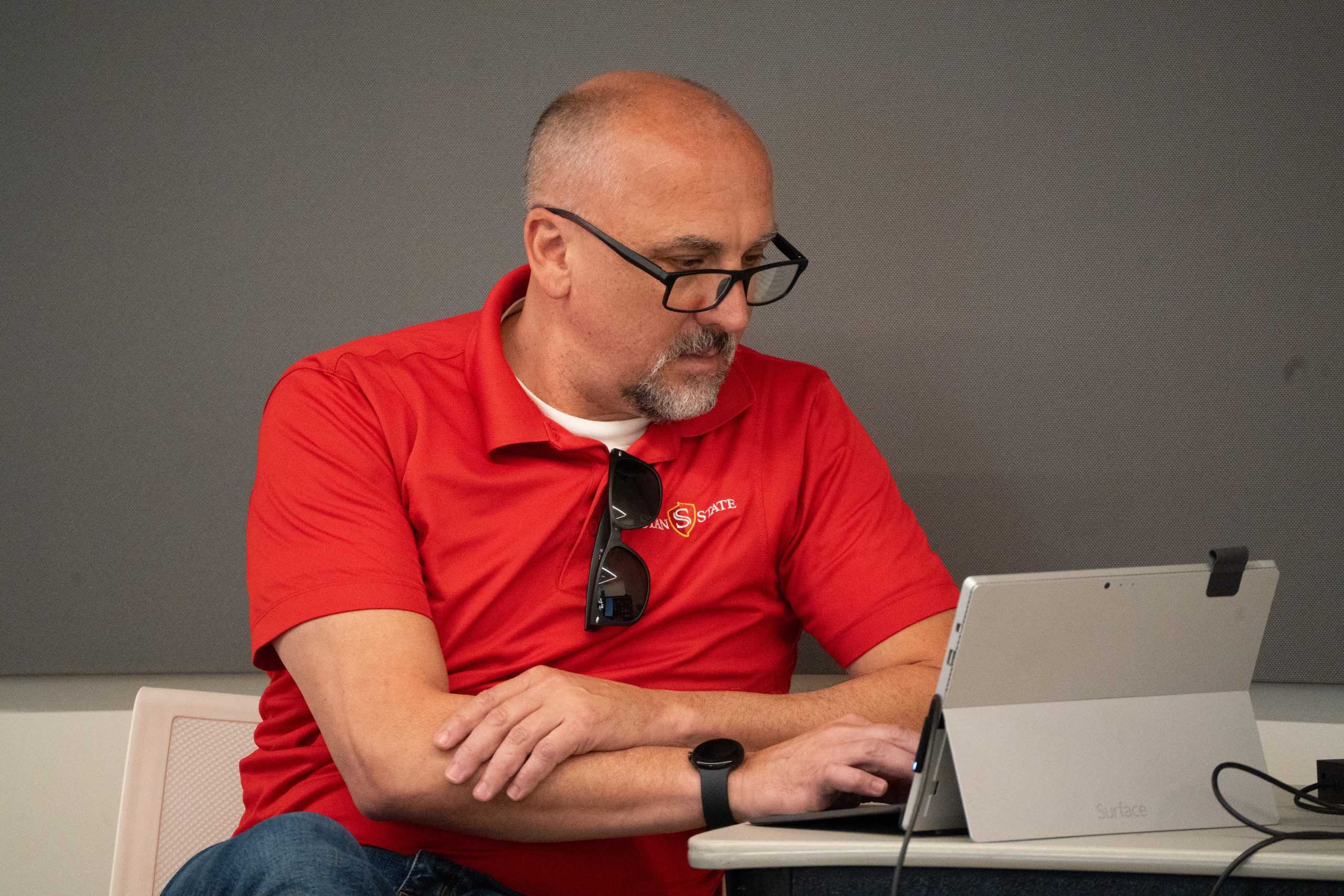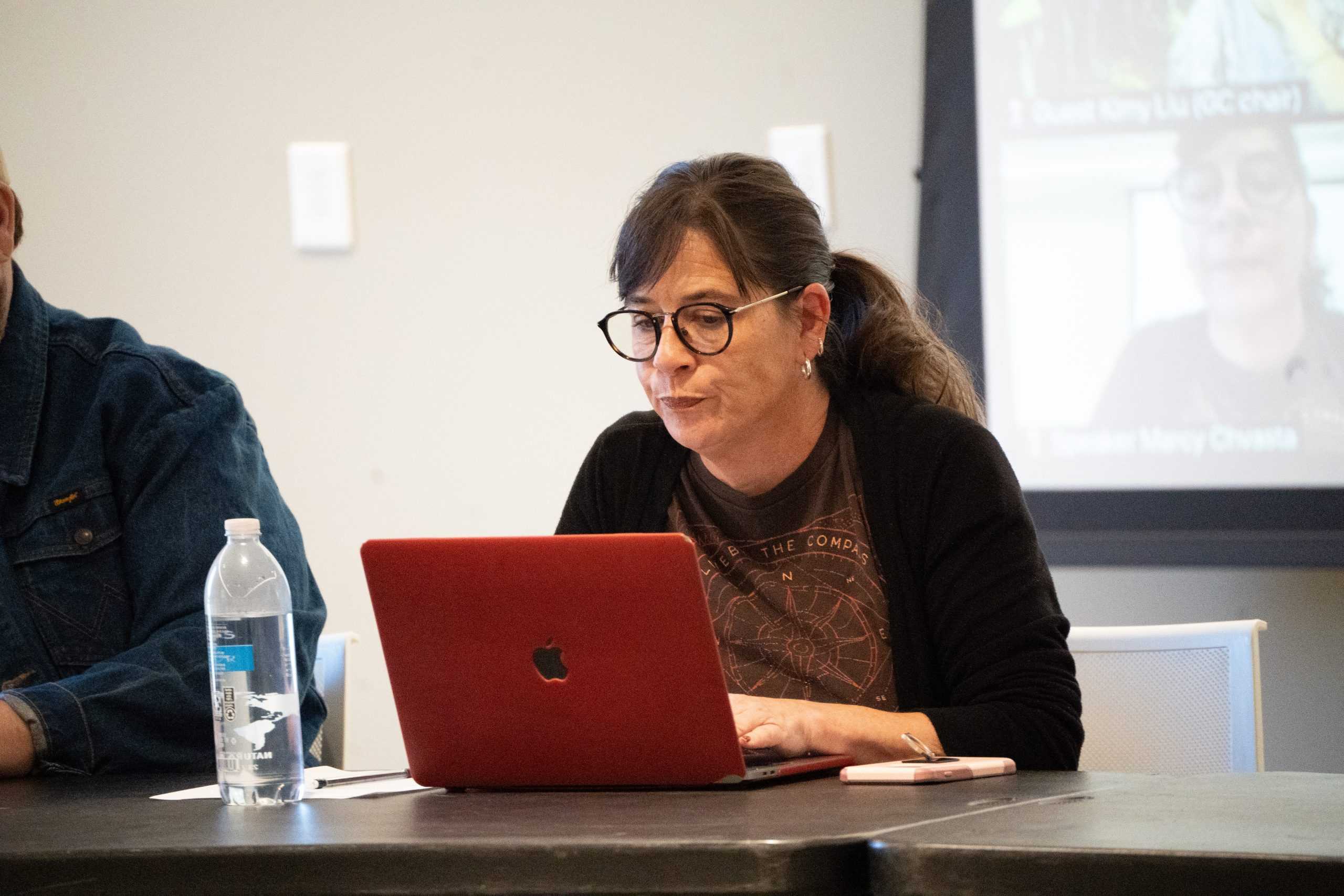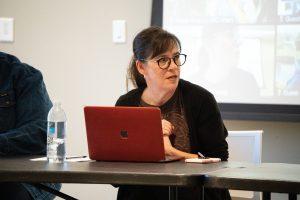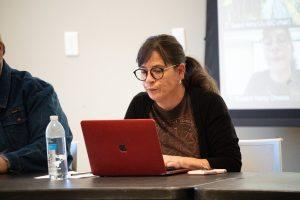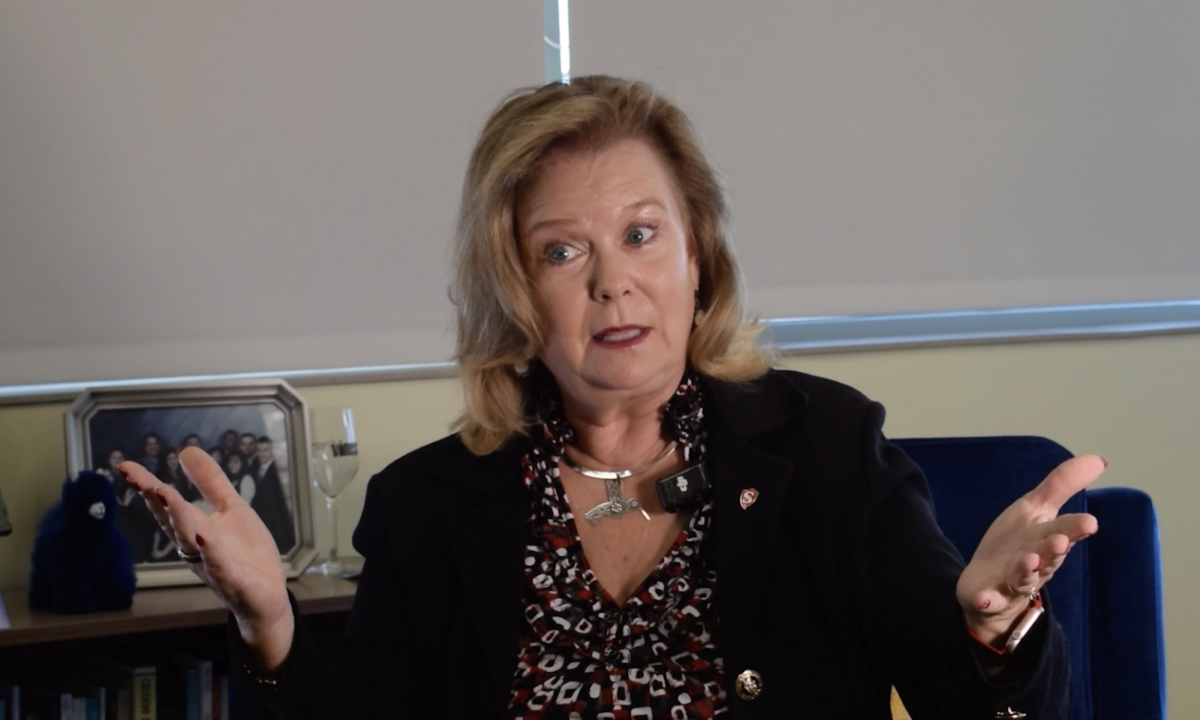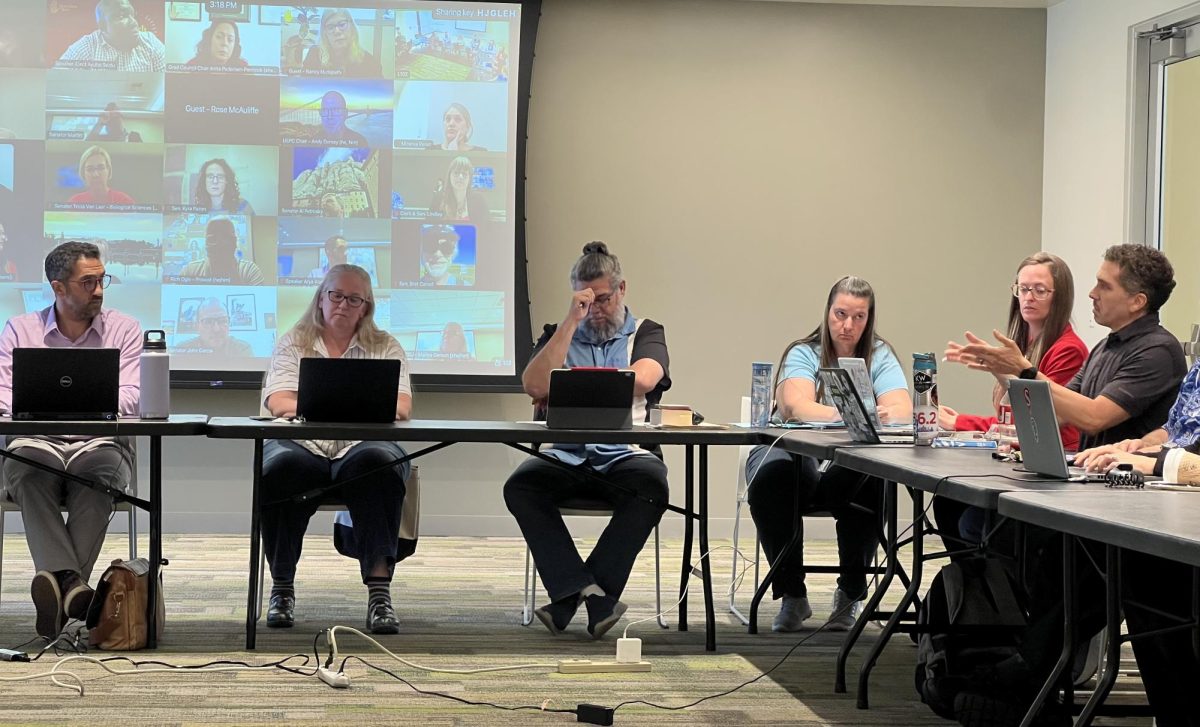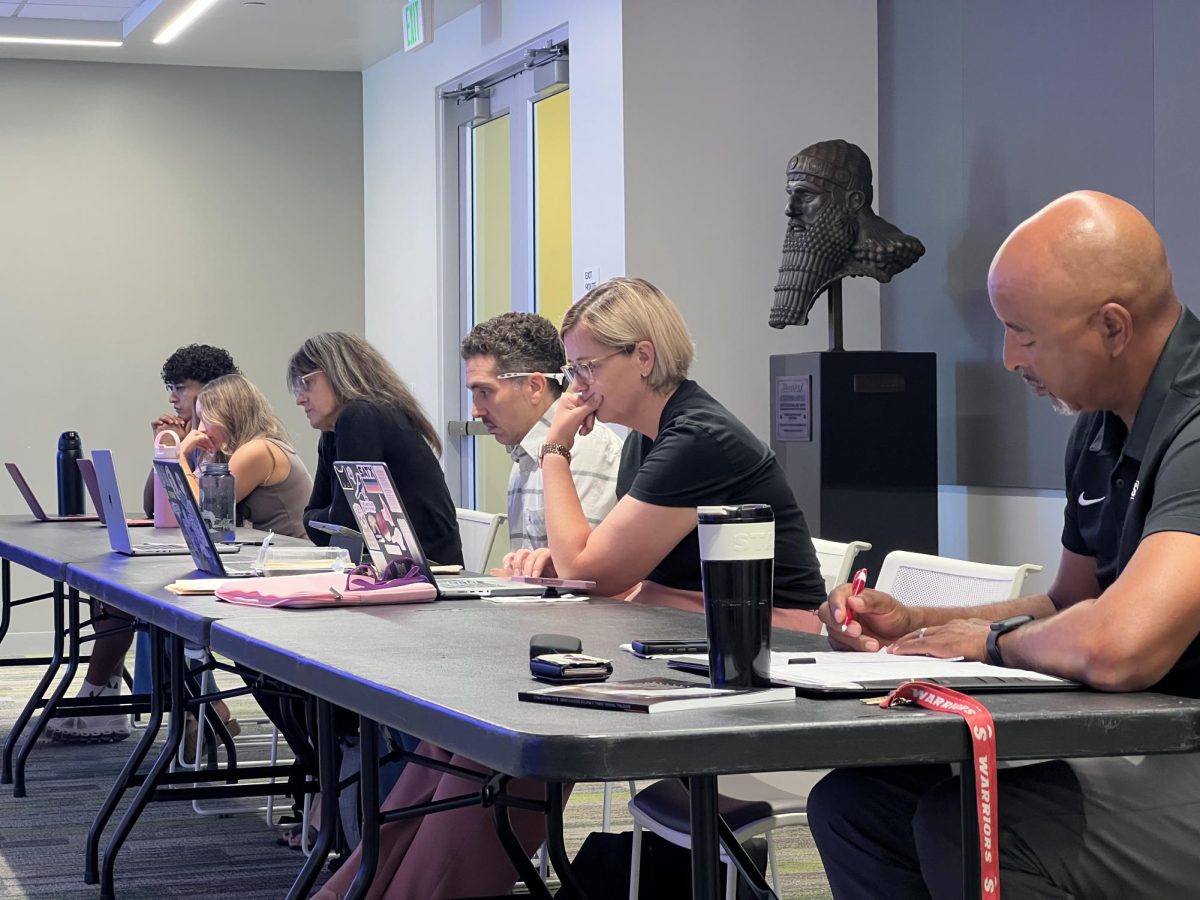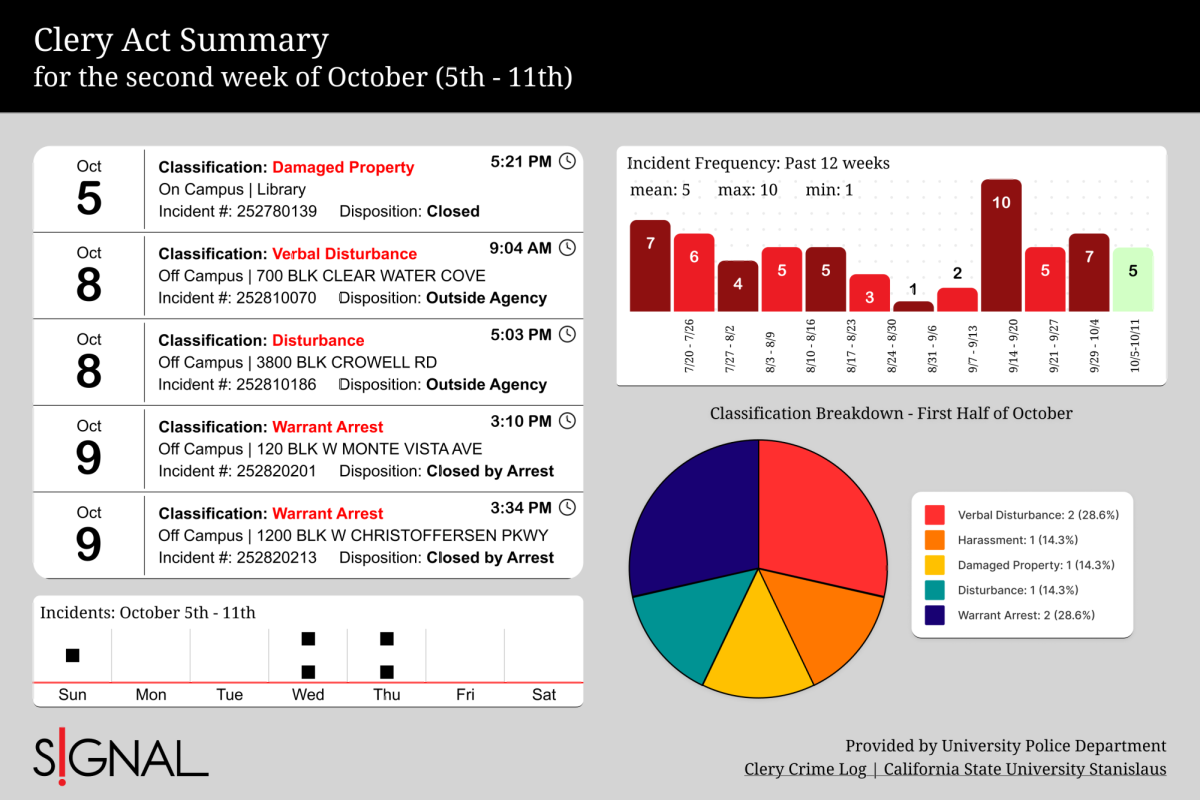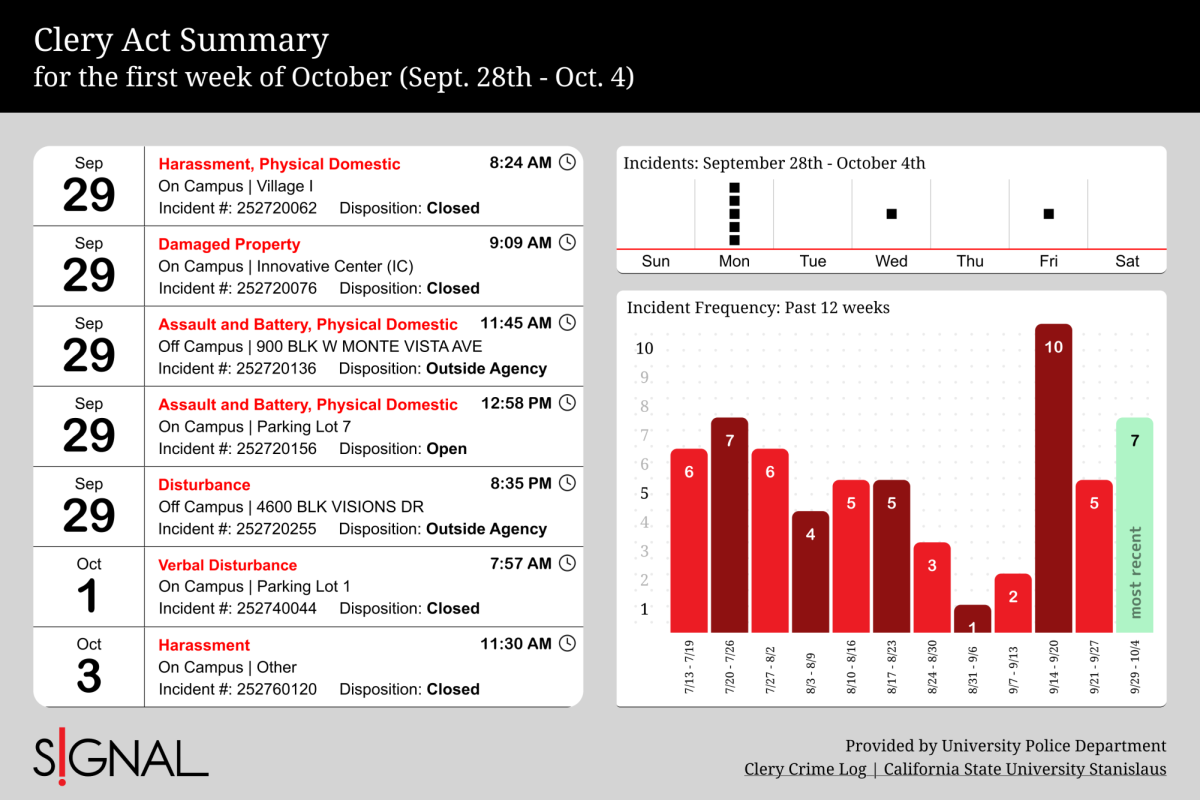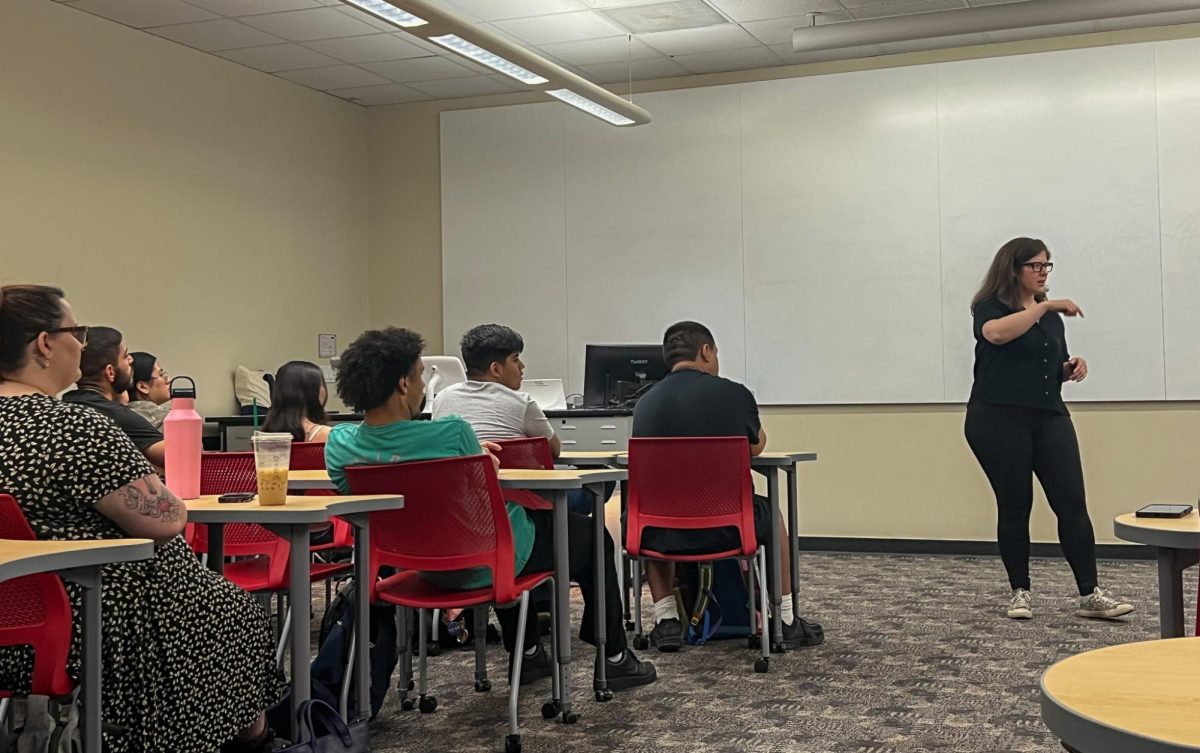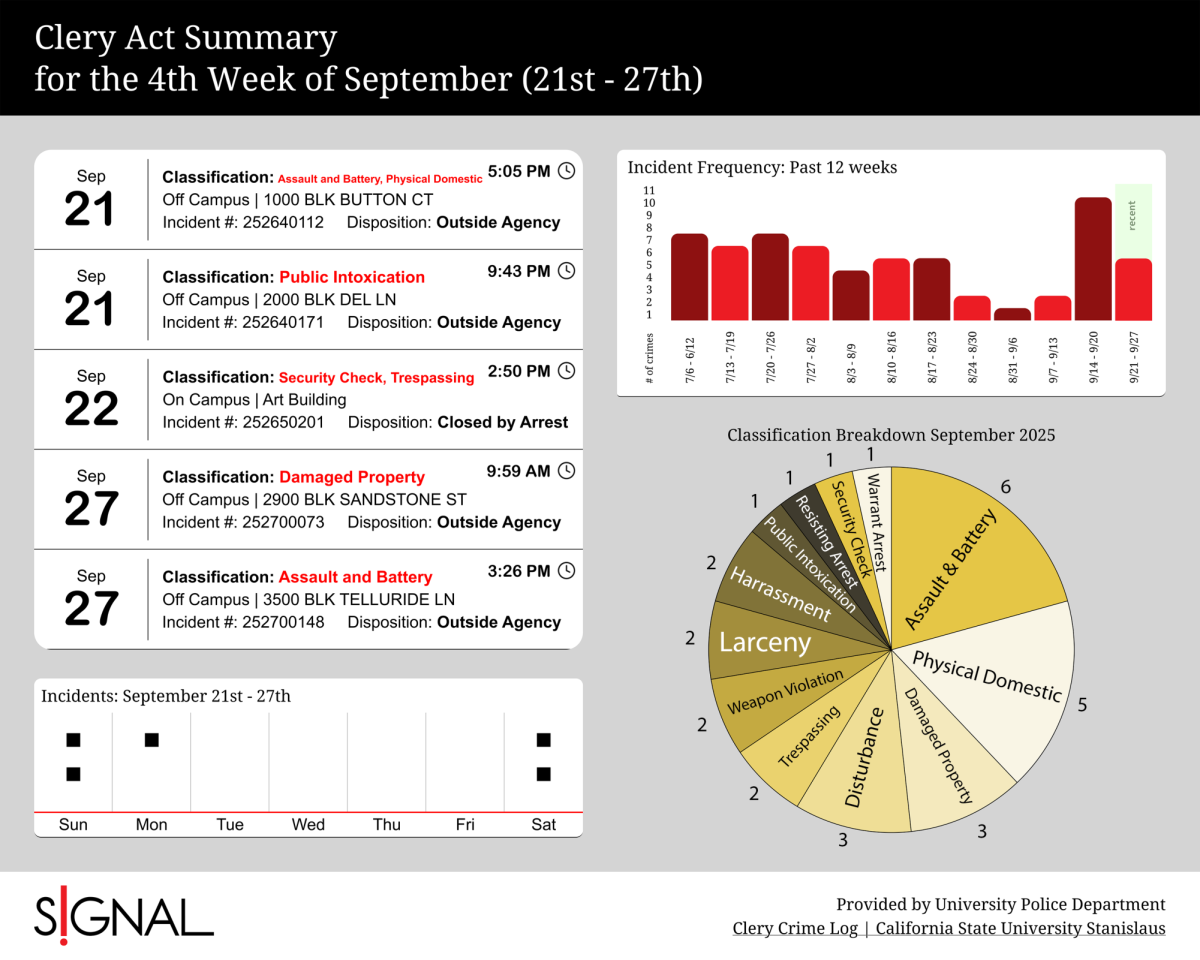Tuesday’s Academic Senate meeting saw Senate members show support for campus members affected by recent CSU, statewide, and national rulings, vote to add a new Medical Anthropology minor, and give updates on the status of the CFA’s contract negotiations.
The meeting started with updates from the committees.
ASI President Adrian Sanchez spoke about last week’s town hall meeting where students were able to voice their opinions about the food services on campus.
After a successful first meeting, questions were raised about future meetings due to concerns of quality over time.
“I can definitely see why we should be having them every semester,” Sanchez said.
Sen. Colnic updated the Senate on the status of the CFA contract negotiations saying that the we are still in the factfinding phase and those meetings will continue for at least the next few days if not longer.
Starting Oct 21, the CFA will be holding a strike authorization vote that will last until Oct 27 at noon.
Colnic also acknowledged the paycheck issues some faculty have had as of late, and the CFA has been receiving new reports of paycheck discrepancies as recently as Monday night.
“These latest ones are strange so were doing some more investigating on those,” Colnic said, “I can tell you what I think we need to do and it’s asking you to do something. Look at your paycheck… If there’s something that may look like it’s not right, it may not be.”
Sen. Tim Held spoke about the Library’s budget, saying that their budget has been stagnant, but its costs keep increasing. In particular, they spoke about video streaming for classes where they are essential, and the costs of purchasing temporary licenses to grant access to these videos legally.
Held said that the library would need additional funding to continue providing these streaming services.
One solution mentioned was that students in the classes would cover the costs of streaming.
“It’s not a very good solution in a couple of ways, but it’s not off the table,” Held said.
Medical Anthropology Minor
Tuesday’s Senate meeting saw the proposed Medical Anthropology minor voted on and passed in a 39-0-3 vote.
In an FBAC memo to Koni Stone, FBAC chair Andrew Gardner describes it as “a diverse, cross-cultural perspective regarding health.”
Texas Court’s DACA Ruling
In late September, the Signal reported that Texas courts ruled that DACA violated U.S immigration law.
This opened eyes on campus as over 50% of CSU Stanislaus undergraduate students identify as Hispanic and nearly 4% are undocumented or identify as a non-resident alien.
Sen. Dana Nakano said that if this Sense of the Senate resolution passes, they will release an official statement in support of undocumented students on campus.
Senate’s Opposition of Recent Tuition Increases
On September 13 it was announced that tuition will be increased up to 34% over a 5-year period or 6% annually.
Nakano described the tuition hike as unnecessary.
Senator Brian Morsony agreed with the statement, but wanted it to provide further explanation as to why the hike was unnecessary.
Senator Colnic provided some potential arguments to include in the statement, such as the fact that the CSU’s reserves have gone from $1.6 billion to $2.3 billion over the past few years and that executive administrator salaries are still being raised.
Sense of the Senate Statement about Lifted State Travel Ban
Senator Nakano also presented a resolution which would affirm the Senate’s support for LGBTQ+ students and encourage faculty and staff to develop concrete plans to protect LGBTQ+ students who have to travel to states that are hostile to them for business or to develop their curriculum vitae.
This resolution comes after Governor Newsom lifted the travel ban which prevented government bodies in California to use tax payer money to fund travel to states with laws that are hostile to LGBTQ+ people.
In its place, Gov. Newsom implemented the BRIDGE project to provide additional funding and support to ensure safe travel to these hostile states.
ATLC Chair, Senator Cassandra Drake, told an anecdote about her time in New Orleans for a conference when Louisiana was on the list of restricted states.
While there, she met a bartender who was part of the LGBTQ+ community who voiced his appreciation of visitors from out-of-state who are more accepting of them than the locals are.
All three of these Sense of the Senate resolutions will be second reading items at the next Senate meeting.
Faculty Development Controversy Continues
In a long, 45-minute discussion, Senators learned that there is still an indefinite pause on future faculty development planning resulting from SEC taking action over the FDC and FCETL for reasons that are still not quite clear.
FAC Chair and SEC member Senator Nakano said that action was taken due to a number of FDC members who expressed discomfort with the environment being fostered in both the FDC and FCETL.
The Speaker of the Faculty, Senator Marcy Chvasta, said they expected the pause to be temporary and only take a few weeks to resolve, but the resignation of FCETL Director Shradha Tibrewal has slowed that process down.
The Senate session ended with an air of confusion over what Senators should report back to faculty on the issue, and therefore is likely to continue in the next Senate meeting.
Academic Senate Votes on Medical Anthropology Minor, Voices Support for Stan State Community, and More
Senator Tim Held, who presented the statement from the library about their budget issues. (Signal Photo/Brian Miske)
0
More to Discover
About the Contributor

Nix Carbone-Deep, Senior Editor
Year: Graduate Student
Major: English
I love controversy and drama. Whenever something contentious or emotionally-charged pops up on-campus or in the wider political sphere, you can expect me to be there to cover it. I’ve reported on abortion access, labor disputes, CSU Board of Trustees’ decisions, federal court rulings, and more. However, I’m always most interested in how decisions like these, or sometimes even political indecision, affects everyday people and aim to shed light on their experiences. I’m into video games, tabletop roleplaying games, reading all kinds of genres (classic and contemporary novels, Renaissance drama, political theory, etc.), horror films, and history (political revolutions and the history of the sciences especially).




